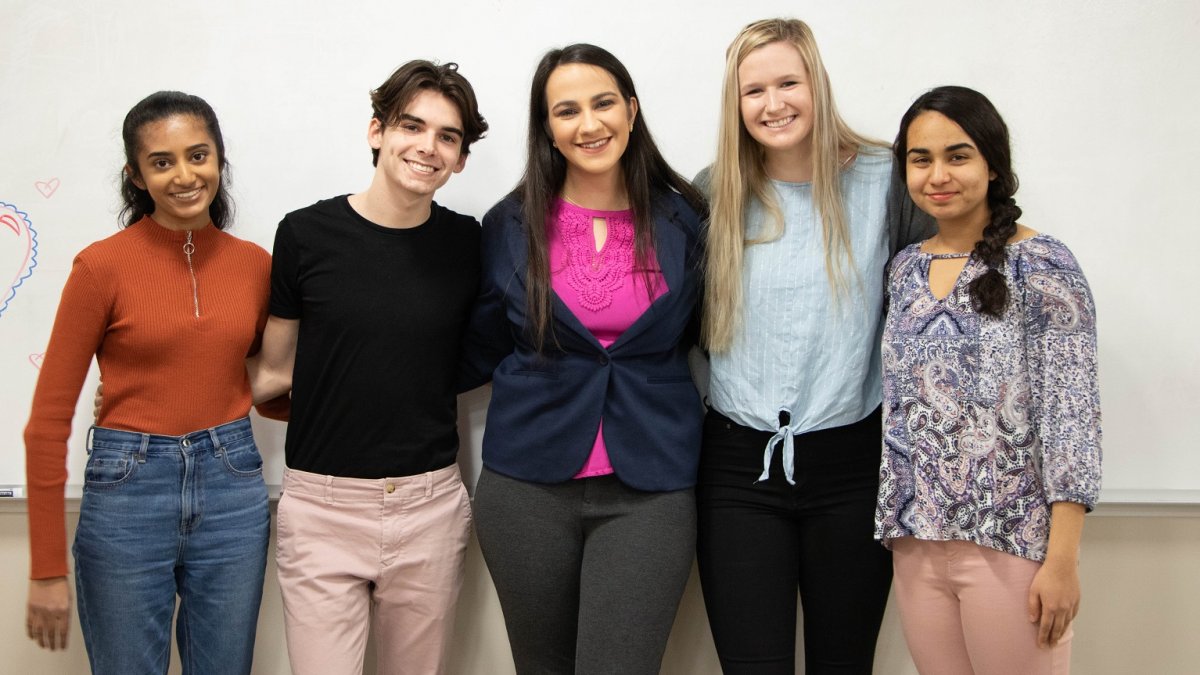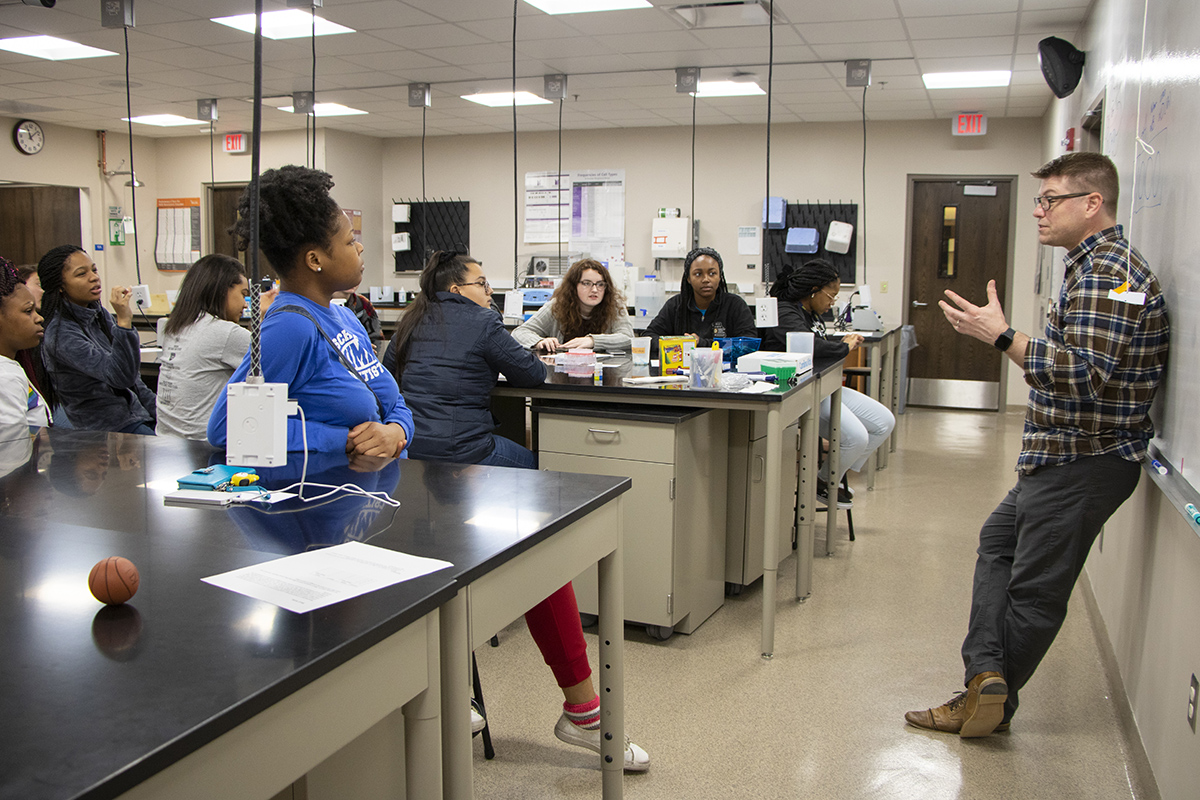KU Edwards Campus Biotechnology Faculty Create Learning Opportunities for Local Students

By 2022, careers in science, technology, engineering and math — commonly known as STEM disciplines — are expected to grow faster than the average for all other occupations, according to the Bureau of Labor Statistics. However, according to the U.S. Department of Education and the National Center for Education Statistics, not enough students are getting access to STEM learning opportunities, or pursuing STEM-based degrees in college, to fulfill the growing demand.
Biotechnology faculty at the KU Edwards Campus are working to help bridge that gap through outreach programs involving Kansas City area high school students. Jack Treml, and Randall Logan, both professors of practice and program directors for the department, have created a series of campus events and programs designed to spark student interest in STEM learning, provide lab experience and introduce them to career possibilities.
“We often meet high school students that are very interested in science but when we ask about their future career plans, they overwhelmingly say ‘I want to be a doctor,’” Logan said. “We want to open their eyes to the other options and raise awareness of the profound impact they can have on society by contributing to scientific discoveries.”

Logan and Treml host several outreach events for both students and teachers throughout the year. In the fall and spring semesters, high school juniors and seniors visit KUEC’s biotechnology lab facilities. The visiting students roleplay scenarios modeling challenges scientists face, run hands-on experiments, and explore career options in science. In late fall, Biotech Day kicks off the Research Apprentice Program, where high school seniors are invited to apply for a semester-long research experience. These Apprentices work side-by-side with KUEC biotechnology seniors on a capstone project, generating experimental data in the lab, analyze results, and learn how to complete a research project.
Logan and Treml also offer a summer research methods class designed for high school science instructors seeking to expand their technical skills and content knowledge. Working with KU Faculty, the participants create new active-learning laboratory experiences that they can take back to the classroom.
Stephenie Higgs, a biology instructor at Spring Hill High School, says she’s found the summer research methods class extremely helpful.
“This course helped to refresh and re-hone my own personal laboratory skills, as well as give me some new, fresh ideas on how to make my classroom labs more hands on, more inquiry based,” Higgs said. “I believe it has been one of the most helpful master's classes I have ever taken!”
KUEC biotechnology senior Paniz Borzoofard recruited high school apprentices to aid her on her capstone project, creating an in-home test for prostate-specific antigen, a protein associated with prostate cancer.
“Performing and completing a capstone project is something that takes a lot of time and requires a lot of patience. Having my apprentices there during the week really helped me with both of those aspects, especially the time aspect,” Borzoofard said. “They were always there to help me run different experiments. They also provided feedback or suggestions throughout their experience here which have been helpful and insightful.”
For one of Borzoofard’s apprentices, Olathe North senior Nasrin Shahlari, the experience has helped her develop technical skills she wouldn’t otherwise get from her classes.
“We’ve gotten to try things in class, but we haven’t gotten to use equipment,” Shahlari said. “For stuff like pipetting, Paniz did a great job helping teach me.”
Fellow Apprentice and Olathe North senior Ty Twidwell says his experience has been similar. “The senior I’m working under, Paniz, is really awesome and super helpful whenever I need it! She teaches me a lot of in-depth stuff and helps me solidify my lab technique,” Twidwell said. “She also had me do some research which helped me comprehend scholarly reports and studies better.”
In addition to help in the lab, Borzoofard says her role as a mentor has helped her learn leadership skills she’ll be able to use after she graduates. “Leadership isn’t about giving orders. It’s about teaching those below you what you know and staying patient throughout the process until they feel comfortable handling things on their own,” Borzoofard said. “This is something that has grown immensely within me, which helped me succeed in walking the students through my capstone project and making sure they’re as comfortable with the project as possible.”
Logan says this collaboration between high school apprentices and undergraduate seniors helps facilitate the development of practical skills that will benefit their future careers. “The students probably don’t realize it now, but in a couple years they will grow to understand what their training has given them,” Logan said. “I'm absolutely confident that they're getting skills that are relevant and usable in the industry or in graduate school.”
The Bachelor of Applied Science in Biotechnology is supported by the Johnson County Education Research Triangle.
Top Photo: Olathe North High School seniors Mahathi Muralidharan,Ty Twidwell, Evie McQueen and Nasrin Shahlari worked with KUEC senior Paniz Borzoofard (center) as apprentices on Borzoofard's senior capstone project for the Bachelor of Science in Biotechnology program. Borzoofard's project was to create an in-home test that can be used to detect a protein associated with prostate cancer.





